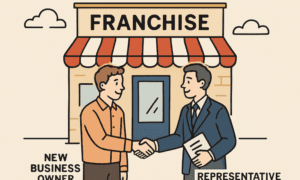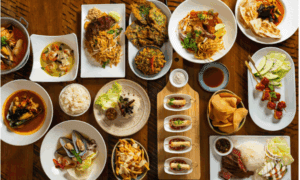Opening a food franchise is an exciting venture. It is a great way to become your boss and make your dream of owning a successful business come true. But it isn’t without its costs. There are many factors to consider when choosing a franchise, as well as the costs to open and run your own business. While this list may seem daunting at first, it’s important to know what you’re getting into before making any commitments. There are several things to consider when budgeting for your franchise.
This includes the franchise fee, equipment costs, real estate costs, advertising costs, and labor costs. All of these costs are important to consider when opening a food business. Knowing what to expect and budgeting for each of these expenses will help you better plan and prepare for the financial aspects of launching your own business. Nonetheless, no one wants to be surprised by the costs associated with starting your own food business, right? Read on to find out the top five costs to look for when opening a food franchise.
1. Franchise Fee
One of the first expenses you will encounter when opening a food franchise is the franchise fee. As you open a pizza franchise, for example, there is a one-time payment fee that you have to pay upfront to the franchisor in exchange for the rights to their brand and business model. The amount of the franchise fee will vary (normally between $10,000 and $50,000) based on the company and the type of franchise you are looking to open.
You should always ask about the fees associated with opening this kind of business franchise before making any decisions. When opening a franchise, you will want to do some research to find out what the average cost of the franchise fee is within your industry. You will also want to research the total costs associated with opening a franchise in your industry to see if it is within your budget. This will help you determine whether or not a particular franchise is a good financial fit for you.
2. Equipment Costs
When opening a food franchise, for instance, a fast food one, you will need to budget for the cost of equipment aside from the fast food franchise cost itself. This normally includes kitchen equipment, furniture, signage, and any other assets needed to get your business up and running. Many of these franchises will have equipment packages that you can purchase. This will help you save money on upfront costs. But there may be some downsides associated with these equipment packages. Budgeting for equipment costs is important.
But you don’t want to skimp on the quality of your equipment. This can lead to poor service and low profits. You want your equipment to be efficient and high-quality so that it lasts for years and allows you to produce high-quality products. When choosing the equipment for your business, keep in mind the volume of customers you expect to serve. This will help you choose the correct equipment so that your business operates as efficiently as possible.
3. Real Estate Costs
Opening a food franchise also comes with real estate costs. For example, if you want to start a Stand-Up burger franchise in your chosen area, the cost will normally depend on where you choose to open your business. If you choose to open your business in an existing building, you may be able to negotiate the lease terms. However, if you are looking to build from scratch, there will be additional costs associated with finding a suitable location and making all of the necessary improvements.
If you choose to open a franchise on your property, on the one hand, there will be no real estate costs. But if you are looking to lease or purchase a commercial space, those costs will come into play. Be sure to factor those costs into your budget as you plan to open a franchise. If you are considering a commercial space, be sure to do your research. This includes looking at commercial real estate listings in your area and talking to real estate agents. This will help you find the perfect location for your franchise and will help you avoid overspending on commercial real estate.
4. Advertising Costs
Advertising costs are another expense to consider when opening a food franchise. Although advertising is usually part of your franchise fee, you may also want to clarify whether or not there are any associated advertising costs in the franchise package you will get.
In particular, the costs associated with this aspect help your franchise to get the word out about your business. The payment for this cost will help fund the ongoing marketing strategy of your franchisor to promote the brand you represent and establish recognition from the public. There are many different ways of advertisement strategies that are being implemented by your franchisor.
They normally choose to advertise online, on social media, in newspapers, or even on the radio. If you have something special to be done in your business franchise, you will want to discuss your advertising strategy with your franchisor before opening for business. This will help you make sure that your marketing efforts are in line with the company’s goals. It will also protect you from any potential legal issues.
5. Labor Costs
Finally, another cost to consider when opening a food franchise is labor costs. This includes wages for employees, benefits, payroll taxes, and any other costs associated with hiring employees. The staffing requirements for a particular franchise can vary from business to business. Some require more employees than others, which will impact your costs. You should also keep in mind that the labor laws in your state may require you to provide certain benefits or pay minimum wages.
You will also want to have the appropriate number of employees for each shift. This will help your business run efficiently and keep labor costs under control. Before you open for business, you will want to talk to a payroll service or hire an accountant. This will help you calculate how much each employee will cost and help you stay on top of your labor costs and remain compliant with all state and federal regulations.
Final Thoughts
Opening a food franchise is a great way to become your boss and make your dream of owning a successful business come true. The franchise fee, equipment costs, real estate costs, advertising costs, and labor costs are only some of the major costs associated with running your dream food business. All of these expenses are important to consider when budgeting for your franchise. Knowing what to expect and budgeting for each of these costs will help you better plan and prepare for the financial aspects of launching your own business.



































